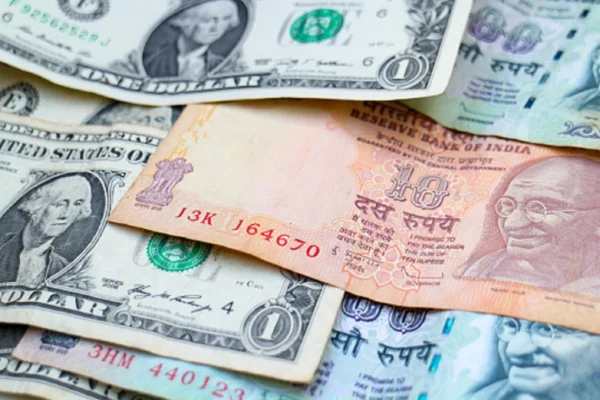India’s foreign exchange (forex) reserves have witnessed a steady decline, marking the fifth consecutive week of reductions. According to data from the Reserve Bank of India (RBI), the reserves dropped by an additional $2.166 billion, reaching $584.742 billion for the week ending October 6. This figure represents the lowest level in more than five months. Just the previous week, the forex reserves had dipped by $3.794 billion, reaching $586.908 billion.
This decreasing trend is a significant departure from October 2021 when India’s forex reserves had reached an all-time high of $645 billion. The declining reserves can be attributed to measures taken by the central bank to defend the Indian rupee, primarily due to global developments that have unfolded since the previous year.
For the week ending October 6, the major component of India’s forex reserves, known as foreign currency assets, decreased by $707 million, amounting to $519.529 billion. These foreign currency assets are adjusted for the appreciation or depreciation of non-US currencies like the euro, pound, and yen held within the foreign exchange reserves.
In addition to foreign currency assets, gold reserves also experienced a notable drop, declining by $1.425 billion to $42.306 billion, as reported by the RBI. The Special Drawing Rights (SDRs), another element in the forex reserves, decreased by $15 million, bringing the total to $17.923 billion.
It’s worth noting that foreign exchange reserves include India’s Reserve Tranche position in the International Monetary Fund (IMF). For the specific reporting week, India’s reserve position with the IMF also decreased by $19 million, reaching $4.983 billion, according to data from the central bank.
During the week corresponding to the forex reserves data, the Indian rupee witnessed a slight 0.1% depreciation against the US dollar. The rupee traded within a range of 83.1650 to 83.2650 before closing at 83.2625 on Friday. This marked the third consecutive week of depreciation for the Indian rupee.
It’s essential to understand that India’s forex reserves have been under pressure due to various factors, including global economic conditions, trade balances, and the monetary policies of the RBI. The management of forex reserves plays a vital role in maintaining financial stability, supporting international trade, and safeguarding the value of the national currency.
While these fluctuations are a natural part of a nation’s economic journey, analysts and policymakers continue to monitor forex reserves and exchange rates closely to ensure a robust and resilient financial system. The declining trend in India’s forex reserves reflects the complexities and challenges that come with maintaining economic stability in an interconnected world.














